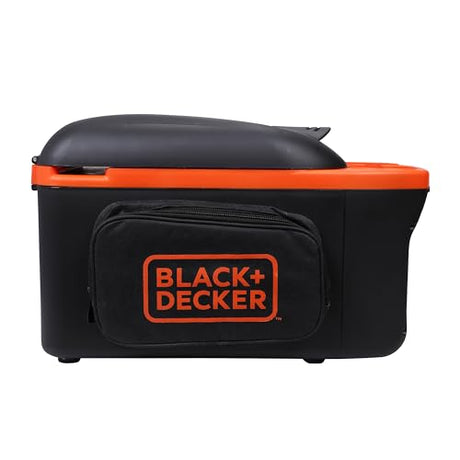You may also like
Allen Hex Key Mastery: 17 Power Tips for Every DIY Enthusiast
Allen Hex Key Mastery: 17 Power Tips for Every DIY Enthusiast
Whether you're a professional handyman or a DIYer, at Tools Warehouse, we provide quality tools and professional help to give you advice for your projects. At times, some of these tasks, such as assembling flat-pack furniture, fixing a bicycle, or even more advanced home improvement activities, require an Allen hex key (also referred to as a hex wrench or Allen wrench).
With various essential tools that come in handy and are compact and versatile, mastering the use of Allen keys greatly enhances the quality and precision of your work. This guide by Tools Warehouse describes everything about Allen hex keys, from their types and sizes to how one should choose the right hex key set and 17 ways to use it.
What is Allen Hex Key?
An Allen hex key is a small handheld tool used to drive bolts and screws with hexagonal sockets in their heads. It is named after the Allen Manufacturing Company, which patented the hexagonal drive system in the early 20th century. Allen keys are L-shaped pieces of metal (usually steel or alloy) that provide leverage to turn fasteners securely.
These tools are common in furniture assembly kits, mechanical equipment, bicycles, and electronics, making them essential for both DIYers and professionals. The unique design ensures a tight fit into the hex socket, minimising the chances of slipping or stripping the screw head. Whether you refer to it as a hex Allen key, it plays a crucial role in countless applications.
Also Read: Buying Guide to Electric Screwdrivers
Types of Allen Hex Keys
There are several types of Allen hex keys available at Tools Warehouse, each suited to specific tasks and preferences:
1. L-Shaped Allen Key
The most common design, with a short and long arm. The long arm provides extra leverage, while the short arm fits in tight spaces.
2. T-Handle Allen Key
Featuring a handle perpendicular to the shaft, this type provides better grip and torque, making it ideal for repetitive tasks.
3. Folding Hex Key Set
Multiple hex keys fold into a compact holder, similar to a pocket knife. Ideal for portability and convenience.
4. Ball-End Allen Key
The rounded end allows for turning screws at an angle, useful for reaching difficult spots.
5. Ratcheting Allen Wrench
Offers a ratcheting mechanism for quicker and more efficient turning, especially in tight spaces.
6. Hex Key Bit Set
Used with power tools or screwdrivers, hex key bits provide versatility and speed.
7. Extra-Long Hex Keys
These provide increased reach and leverage, perfect for deep or recessed fasteners.
8. Hex Key Handle Set
This type of hex key combines individual handles with interchangeable bits, offering comfort and control. You’ll find a quality hex key handle set right here at Tools Warehouse.
Allen Key Sets Available at Tools Warehouse
Check out the Allen key sets available at Tools Warehouse.
BLACK+DECKER 8PCS Hex Key Set is a must-have tool for DIY enthusiasts, professionals, and home users alike. Engineered for durability and precision, this compact set offers convenience, strength, and versatility for various applications.
Key Features:
- 8-Piece Set: Includes commonly used metric hex key sizes to handle a range of tasks.
- High-Quality Steel: Crafted from hardened, heat-treated steel for long-lasting durability.
- Corrosion-Resistant Finish: Protects against rust and wear.
- Compact Storage: Foldable or organised design ensures easy access and portability.
- Precision Fit: Accurate tip dimensions reduce wear and strip-outs.
- Multi-Use: Ideal for furniture assembly, bicycle repairs, machinery, and household maintenance.
- Ergonomic Grip: Designed for comfortable handling and better torque control.
- Trusted Brand: Backed by BLACK+DECKER’s legacy of reliable, quality tools.
Also Read: How to Choose the Best Angle Grinder: Buyer’s Guide for Every Task
Allen Key Sizes Chart
Allen keys come in both metric and imperial (SAE) sizes. Here’s a quick reference chart for common sizes:
|
Size (mm) |
Typical Use |
|
1.5 |
Small electronics, eyeglasses |
|
2 |
Small mechanical devices |
|
2.5 |
Bicycles, electronics |
|
3 |
Furniture, light machinery |
|
4 |
Appliances, automotive |
|
5 |
Furniture, tools |
|
6 |
Automotive, industrial equipment |
|
8 |
Heavy machinery |
|
10 |
Large-scale mechanical structures |
How to Choose the Right Allen Key?
Choosing the right Allen key from Tools Warehouse involves considering the specific task, material, size, and convenience. Here’s a step-by-step guide:
1. Determine the Screw Size
Match the key size precisely to the socket head of the screw. Too loose and it will strip; too tight and it won’t fit.
2. Consider the Reach
Need to reach a deep screw? Go for extra-long hex keys. For compact spaces, shorter keys or ball-end versions work best.
3. Torque Requirement
T-handle or ratcheting hex keys are ideal for applying more torque with ease.
4. Portability
On-the-go tasks benefit from folding hex key sets or multitools.
5. Material and Quality
Choose keys made from hardened steel, chrome vanadium, or S2 tool steel for strength and durability.
6. Ergonomics
If comfort is important, opt for hex keys with cushioned grips or ergonomic handles.
7. Set vs. Single Key
Buying a hex Allen key set from Tools Warehouse offers flexibility across different tasks, while single keys are good for frequent, specific jobs.
Also Read: How does an Air Blower Work? Understanding the Mechanics & Applications
17 Power Tips for Allen Hex Key Mastery
Listed below are the 17 power tips for Allen hex key mastery.
-
Invest in a Quality Set
Cheap tools wear quickly. A high-quality hex key set from Tools Warehouse lasts longer and performs better. -
Keep Your Set Organised
Use labelled holders or pouches to avoid losing sizes and ensure quick access. -
Use the Long Arm for Torque
The longer arm gives more leverage—use it for tightening. Use the short arm for control when loosening. -
Choose Ball-End Keys for Angled Access
They allow up to a 25-degree entry angle, ideal for hard-to-reach places. -
Apply Even Pressure
Avoid stripping screw heads by pressing in firmly and turning slowly. -
Check for Wear
Rounded or bent keys should be replaced—they can damage screw heads. -
Match Metric with Metric, SAE with SAE
Don’t mix and match systems. Using the wrong standard may strip the fastener. -
Lubricate Stubborn Screws
A little WD-40 or similar lubricant can help loosen rusted or stuck fasteners. -
Use a Torque Wrench for Precision
For automotive or machinery tasks, a torque wrench with hex bits ensures proper tightness. -
Label Your Tools
Mark your hex keys with paint or stickers for quick identification. -
Try Magnetic Hex Keys
These can hold screws in place, great for working in tight spots or with small parts. -
Clean the Socket Head Before Inserting the Key
Debris in the socket can prevent full insertion, leading to stripping. -
Use Power Tools Carefully
Hex bits on a drill or driver can speed things up, but avoid overtightening. -
Double-Check Alignment
Make sure the key is fully seated before applying force. -
Keep Both Metric and SAE Sets
Many products come from different countries, which helps avoid frustration. -
Consider Colour-Coded Sets
These help distinguish sizes faster and reduce the time spent hunting for the right one. -
Regularly Clean Your Tools
Wipe off dirt, oil, and rust. Well-maintained tools last longer and work better.
These practical insights not only improve your performance but also help you understand hex key wrench uses more deeply in real-world tasks.
Final Thoughts
At Tools Warehouse, we’re committed to equipping DIYers, mechanics, and professionals with the tools and knowledge they need to succeed. Mastering the Allen hex key may seem like a small achievement, but it can dramatically improve your DIY capabilities. Whether you're fixing your bike or assembling intricate furniture, knowing which key to use, how to maintain your tools, and when to apply certain techniques will save you time, prevent damage, and enhance your overall project success. Keep this guide handy, and with these 17 power tips, you’ll be turning screws like a true professional in no time.
Explore our wide range of hex key sets, Allen key sets, etc, in-store or online at Tools Warehouse today!











